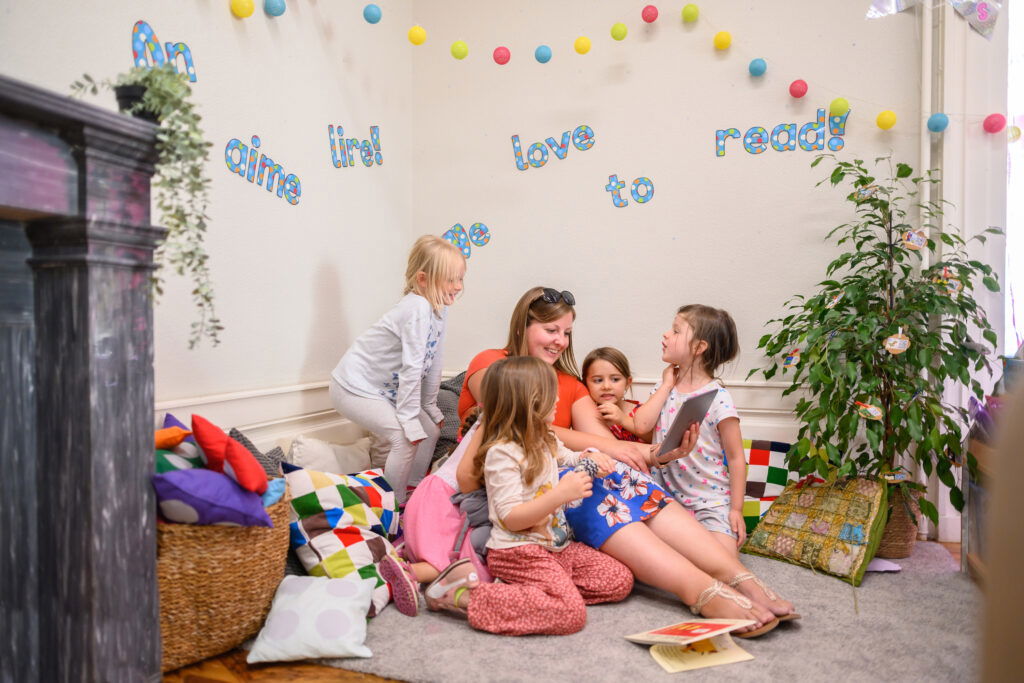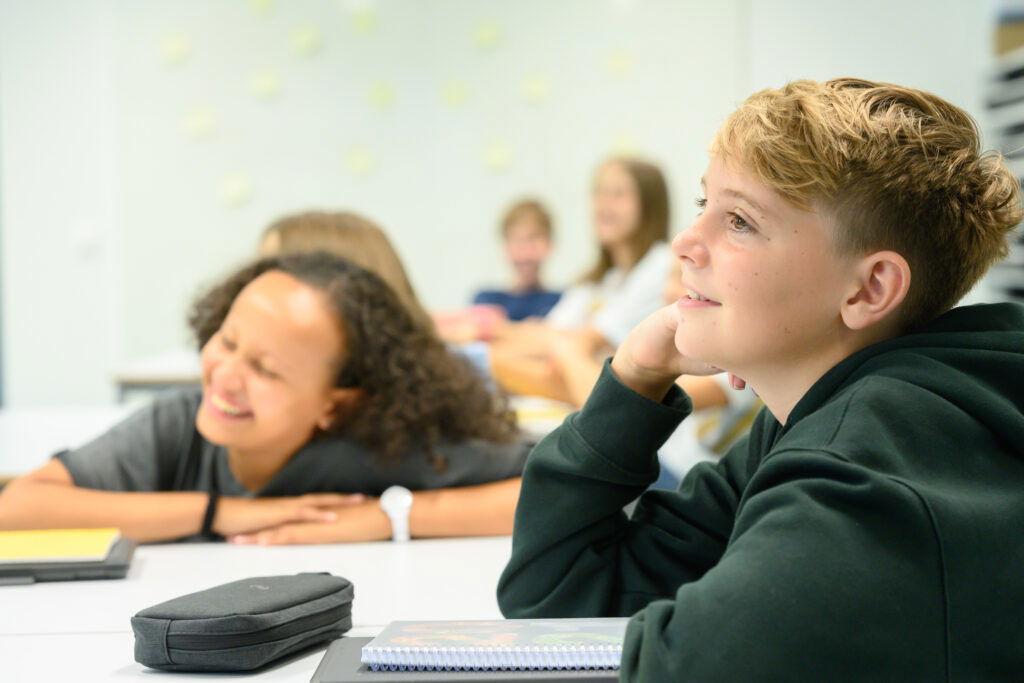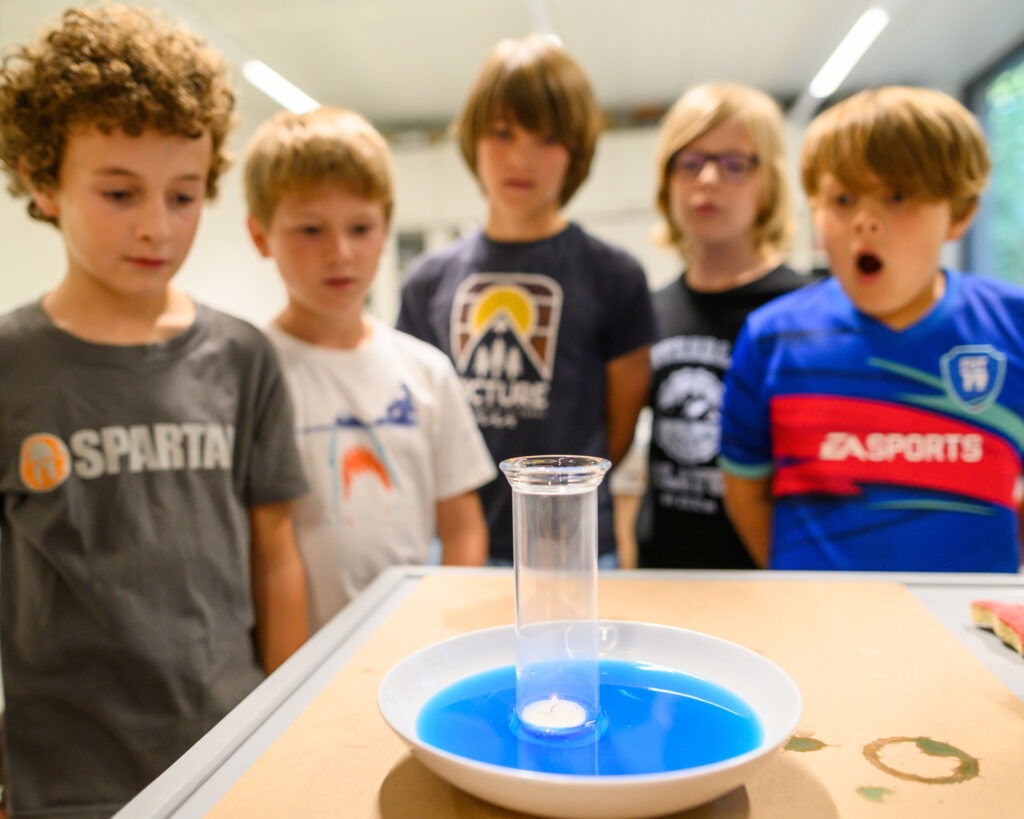How to Ensure Your Child’s Success in the Classroom: Understanding Rosenshine’s Principles of Instruction

Before becoming the headteacher of GES and moving to this glorious part of the world, I spent 20 years working in challenging, inner-London state schools. With the pressure of Ofsted (the UK government schools inspectorate) and exam league tables as a constant, it was a high pressure but rigorous system to be part of. However, I learned very early in my career that if you teach good, well planned engaging lessons that are designed for the students sitting in front of you, then they will thrive.
This simple but perhaps obvious realisation has served me well as a teacher and as a senior leader and now as a Headteacher. An unapologetic focus on classroom practice and a commitment to improve teaching and learning means that all students will make progress and ultimately achieve their full potential in school. At both GES and my previous schools, the academic outcomes for my pupils have been excellent and in this article, I want to share with you a piece of research that has acted as a powerful lever for developing classroom practice.

The UK education system is heavily based on teacher instruction, the teacher is the subject expert and shares their knowledge with the students in the classroom. Students then take this knowledge and use it in different ways, ultimately being tested on what they know in different levels of assessment – either small tests in the classroom or more formal exams at 16 and 18.
Teachers, therefore, need to know the best ways to impart their knowledge and ensure that the students understand and can apply what they have learned. One of the best pieces of research that I have used as a backbone to developing and improving classroom practice are Rosenshine’s Principles of Instruction, a ten point evidence-based teaching strategy that has been found to be effective in improving student learning.
Barak Rosenshine, an American educational researcher, first outlined these principles in the 1990s and they are based on the results of numerous studies on effective teaching practices. These 10 principles are intended to provide a roadmap for teachers to follow in order to create a more effective learning environment for their students.

As a teacher and leader, I have found these invaluable at improving the quality of my teaching and that of others. When these principles are shared with parents, it allows a powerful dialogue to take place between home and school and gives parents an insight into how our teachers teach and our children learn.
The 10 principles of instruction are:
- Begin a lesson with a review of previous learning: Before starting a new lesson, teachers should take a few minutes to review the material from the previous lesson. This will help students to recall important information and to build connections between new and old knowledge.
- Clearly state the learning objectives: Teachers should clearly state the learning objectives for each lesson, so that students know what they are expected to learn. This will help students to stay focused and motivated throughout the lesson.
- Model the thinking process: Teachers should model the thinking process involved in solving problems or answering questions. For example, by ‘live writing’ as the class goes through the cognitive steps to answer a problem in History or modelling their thought process and working steps to answer a question in Maths. This will help students to understand the process involved in writing an essay or solving a problem and to develop their own thinking process.
- Guided practice: After modelling the thinking process, teachers should provide students with modelled practice (questions getting harder or examples of work that students can critique). This will allow students to apply what they have learned to new situations, under the guidance of the teacher.
- Independent practice: After guided practice, students should be given the opportunity to work independently. This will help to reinforce the learning that has taken place and to develop student confidence and autonomy.
- Feedback: Teachers should provide students with frequent and meaningful feedback on their work. This will help students to understand what they are doing well and what they need to improve and will provide them with the information they need to make progress.
- Cooperative learning: Teachers should encourage students to work together in small groups. This will help students to develop their interpersonal skills and to learn from each other.
- Gradual release of responsibility: Teachers should gradually release responsibility to students, so that they become increasingly autonomous and self-directed in their learning.
- Summarise and review: At the end of each lesson, teachers should summarise what has been learned and review the learning objectives. This will help students to retain what they have learned and to understand the main points of the lesson.
- Homework: Teachers should assign homework that is relevant and meaningful. This will help students to reinforce their learning and to develop their skills and knowledge.

By following these principles, teachers can create a more effective learning environment and improve student achievement. The principles are flexible and can be adapted to suit the needs of different students, subjects, and learning situations.
As a school leader, it is important to give staff time to practise different aspects of these principles. Well planned training sessions, time in the week to plan lessons and in-classroom coaching allow teachers to learn and then apply their learning in the classroom. This ultimately leads to better lessons, deeper student understanding and excellent academic outcomes. Whilst our (British) international schools don’t have league tables and Ofsted to worry about, giving students both excellent lessons and a firm academic foundation is something that all educationalists should be committed to.
Matthew Williams – Head of the Geneva English School, GES – a 3 to 18 school that teaches the English curriculum including GCSE and A levels based in Geneva, Switzerland.

